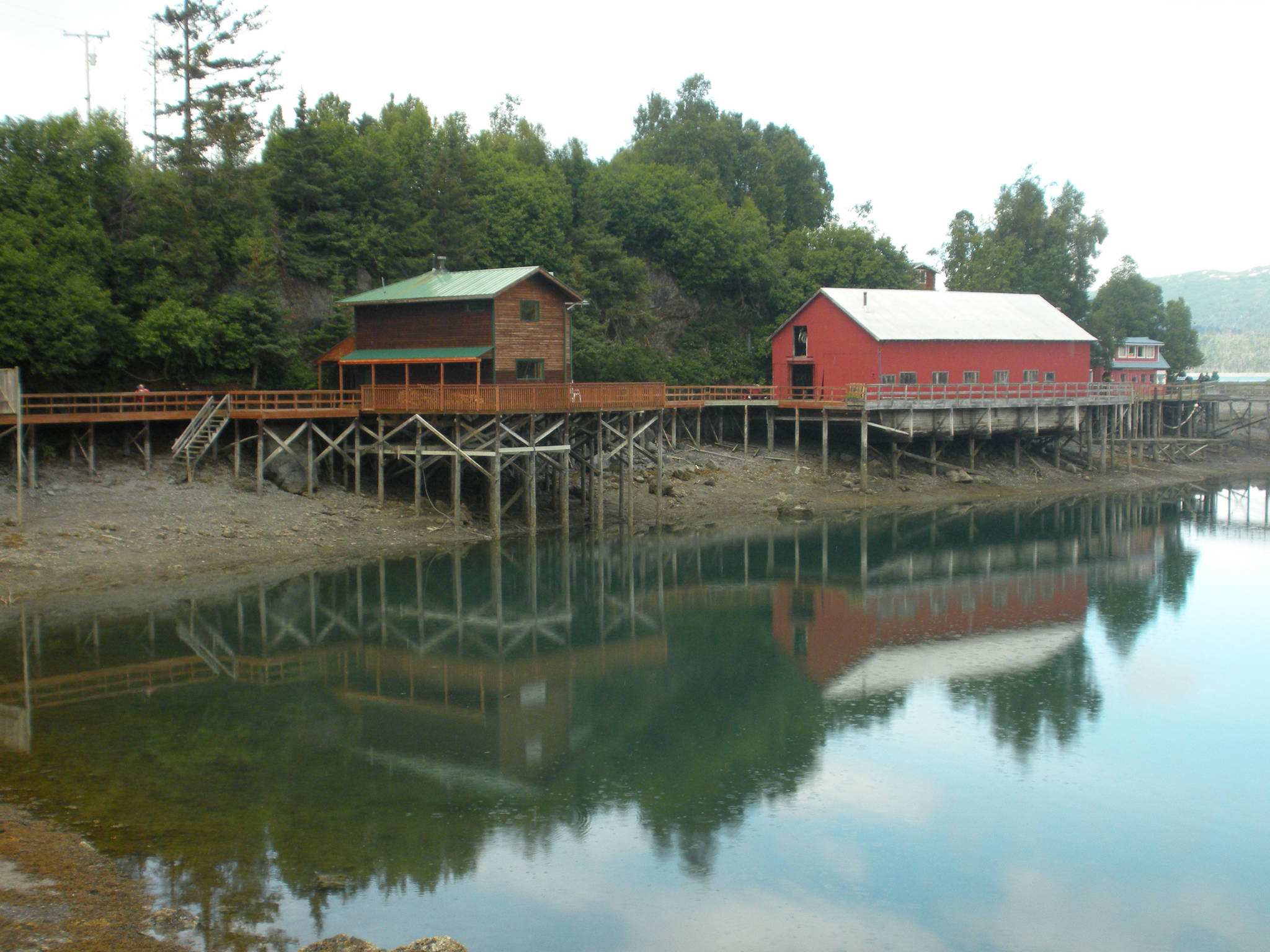Two separate power outages on the south side of Kachemak Bay caused some Homer Electric Association customers to lose electricity for a total of seven days, though not consecutively.
The latest outage from July 8-13 cut service for 5 1/2 days in Halibut Cove, Peterson Bay and China Poot Bay.
The first outage ran from about 9:30 a.m. July 2 to 5:15 p.m. July 3. The second outage hit from about 7:30 a.m. July 8 to about 3:25 p.m. July 13. Some HEA members didn’t get power back until later that evening. HEA Spokesperson Bruce Shelley said rising waters on Stonehocker Creek caused both outages. About 135 members were affected. The first outage happened when the creek breached its bank and caused a tree to fall on the powerline.
“The creek continued to rise and totally breach and started down that easement line and affect three more poles,” Shelley said. “That’s what created the long outage there.”
Home and lodge owners kept power going with either generators from HEA or their own equipment.
“It was challenging. It took a lot more work,” said Shannon McBride-Morin, manager and co-owner with her brother Morgan McBride of Kachemak Bay Wilderness Lodge in China Poot Bay. “We just didn’t expect the power to be out in the summer.”
McBride-Morin said while the lodge is on one meter, counting staff and guests it affected 24 people and 15 buildings. The lodge got by with generators, but services like water and heat weren’t affected. Water comes from a gravity-fed spring system and the buildings have wood stoves. The lodge brought over more generators and 35 bags of ice for its freezers.
“For our guests, they’re here for a luxury wilderness experience, and they did expect hot water,” McBride-Morin said. “They were good natured about it. We have a good crew. It was definitely a challenge for our lodge. All of our staff had to work overtime.”
At The Saltry Restaurant in Halibut Cove, owner Marion Beck said she also made do with a 15 kilowatt generator. HEA provided two generators to the community and asked people to conserve electricity, but one HEA generator at The Saltry end of Ismailof Island didn’t work well.
“I could run the restaurant in stages,” Beck said. “It was horrible, but we never shut down.”
Saltry staff worked out a system where they heated water in the morning and switched over to refrigerators in the day, Beck said. Halibut Cove has about five lodges and a small community of year-round and summer residents. Not everyone has generators, Beck said. Some people are off the grid.
HEA officials held a community meeting in Halibut Cove on Friday to discuss the outage and a long-term solution to the Stonehocker Creek powerline crossing. The powerline goes underground from the end of the Homer Spit to China Poot Bay. At McKeon Flats, one section goes west and south toward Seldovia, and another section goes east and north to China Poot Bay, Peterson Bay and Halibut Cove, crossing the Wosnesenski River and Stonehocker Creek. Because the powerline is in Kachemak Bay State Park, any possible new power pole sites would require a state permit.
“We recognize the important service this provides to members of the electric coop,” Kenai-Kodiak District State Park Superintendent Jack Blackwell said in a phone interview on Wednesday. “We will work with HEA in finding a solution and moving forward.”
HEA has a powerline easement and when it needs to make repairs, including accessing the rough terrain with helicopters, it works with State Parks to do maintenance in a way that protects the park resources, Blackwell said. Whatever solution HEA comes up with will have to follow permitting and park management concerns.
“We’ll do everything we can to find resolution to this quickly,” Blackwell said.
Shelley said HEA is coming up with a long-term plan to address the shifting waters of Stonehocker Creek.
“Engineering is looking at a permanent fix in that area,” he said. “We’re working with State Parks.”
McBride-Morin and Beck criticized HEA for not addressing the Stonehocker Creek situation earlier. They said HEA knew about the potential for flooding and shifting streambed several years ago.
“For the last two years the Woz River has been flowing under the powerlines,” McBride-Morin said. “We’ve known that and told HEA that and asked them to address it. It’s basically been deferred.”
“No matter what they do, it’s going to keep happening. They admitted that,” Beck said. “It’s a flood plain now. It goes up and down, but when it’s up, it’s up (with) two melting glaciers.”
Beck did praise the maintenance and repair crews.
Reach Michael Armstrong at marmstrong@homernews.com.


